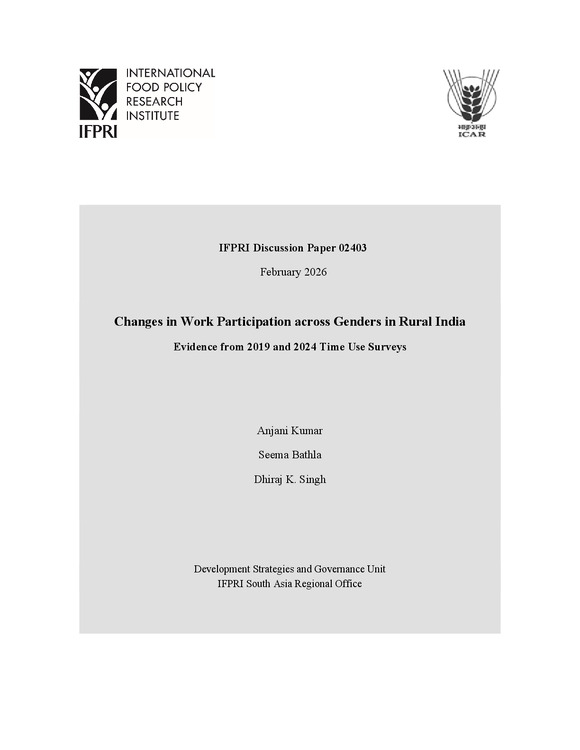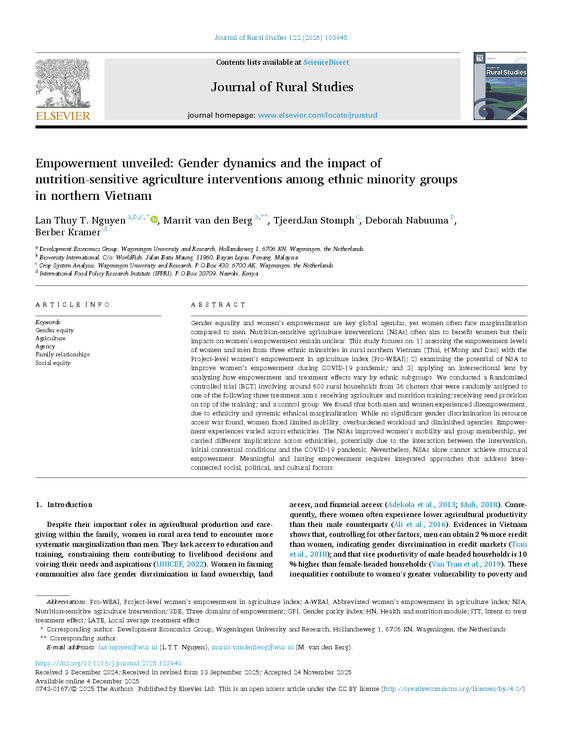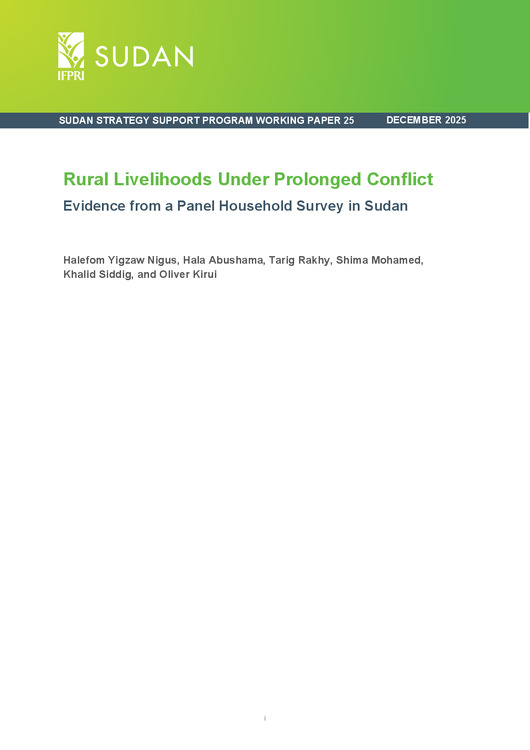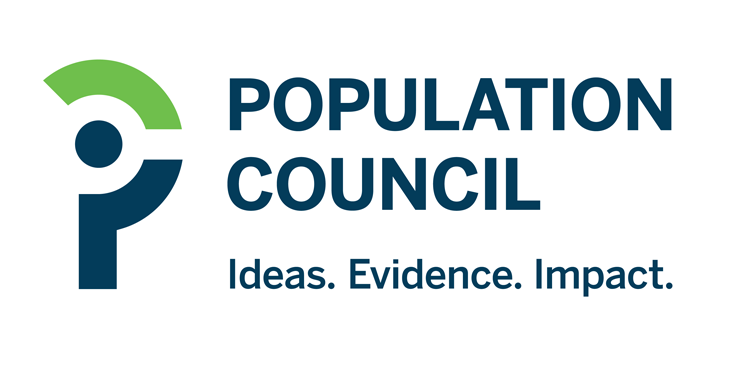Changes in work participation across genders in rural India: Evidence from 2019 and 2024 time use surveys
This study examines gendered patterns of time use in rural India using nationally representative time use surveys from 2019 and 2024, capturing shifts in labor force participation amid significant socioeconomic changes, including the COVID-19 pandemic. The analysis reveals a notable rise in rural women’s labor force participation—from 32 percent to 35.9 percent in agriculture—with a 38 percent increase in their paid agricultural work time. However, this progress coexists alongside entrenched gender disparities in unpaid domestic work, where women continue to spend nearly five hours daily, limiting their engagement in nonagricultural employment, which remains male-dominated and stagnant for women. Using multivariate regression and Gelbach decomposition, the study identifies gender, landholding, education, income, and caste as significant determinants of time allocation. Yet, much of the increase in women’s work time is driven by unobserved factors, likely linked to post-pandemic livelihood adjustments and structural constraints. The findings underscore that recent gains in women’s participation reflect genuine shifts rather than statistical artefacts but caution that without addressing time poverty, gender norms, and access to diversified livelihoods, these gains may not translate into sustainable empowerment. The paper calls for integrated policy measures, including gender-responsive agricultural support, public care infrastructure, skill development, and behavioral interventions to rebalance domestic responsibilities and facilitate women’s transition to higher productivity sectors.
Authors
Kumar, Anjani; Bathla, Seema; Singh, Dhiraj K.
Citation
Kumar, Anjani; Bathla, Seema; and Singh, Dhiraj K. 2026. Changes in work participation across genders in rural India: Evidence from 2019 and 2024 time use surveys. IFPRI Discussion Paper 2403. Washington, DC: International Food Policy Research Institute.
Keywords
Southern Asia; Asia; Gender; Labour; Multivariate Analysis; Rural Areas; Unpaid Work; Surveys; Time Study
Access/Licence
Open Access








